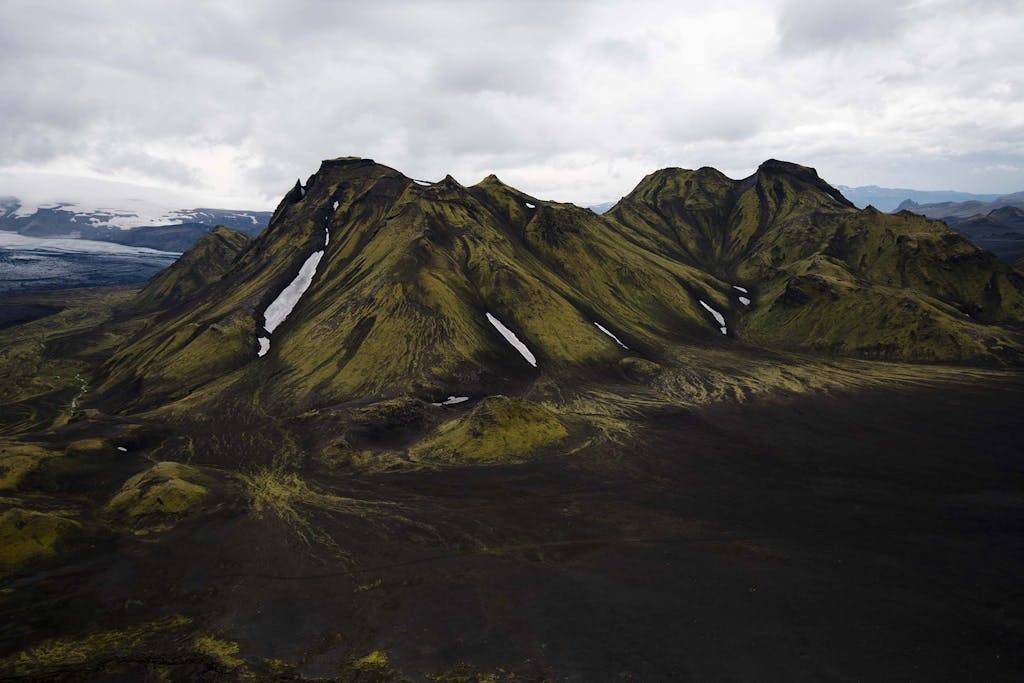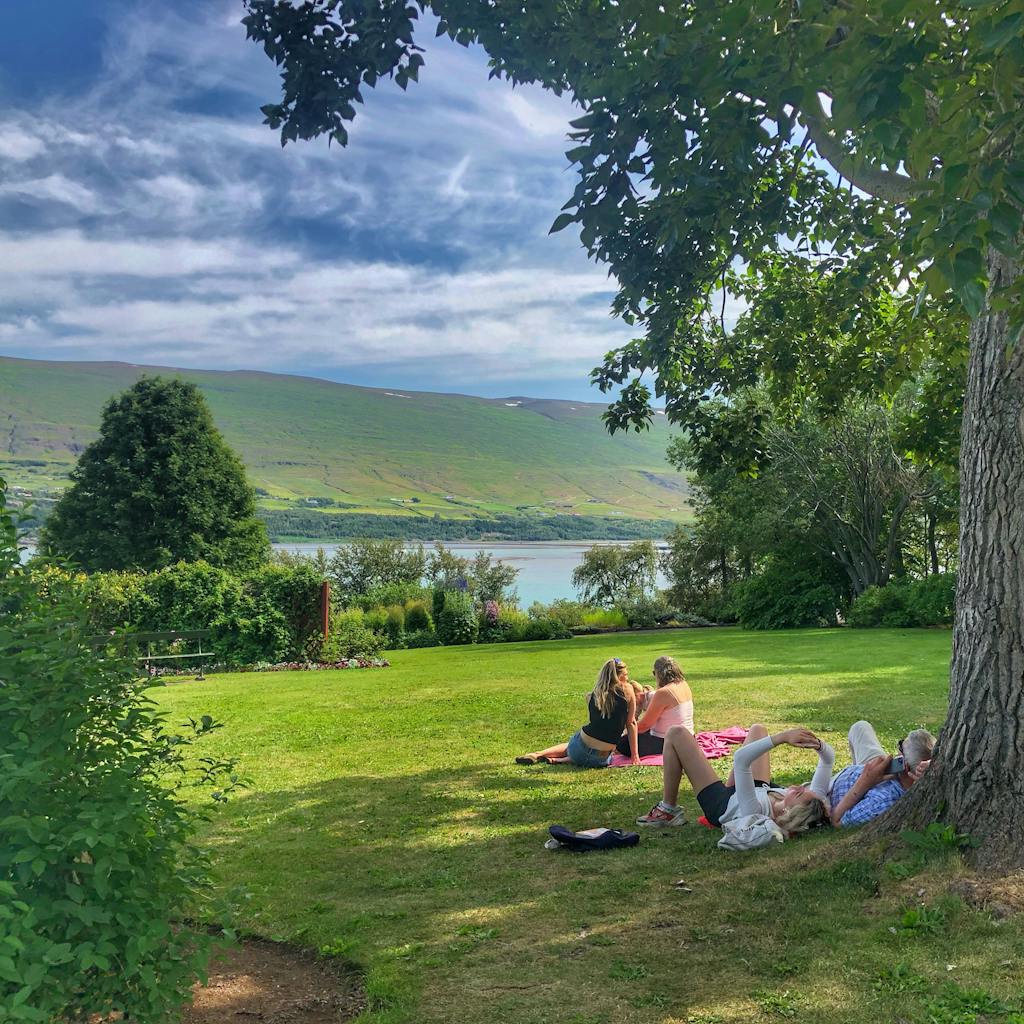First Lady of Iceland Eliza Reid on the Best Things to Do in Iceland
Eliza Reid is many things — an author, entrepreneur, travel writer and co-founder of the annual Iceland Writers Retreat. She’s also the First Lady of Iceland. Her book, Secrets of the Sprakkar: Iceland’s Extraordinary Women and How They Are Changing the World is a smart and delightfully down-to-earth memoir that explores her life as a Canadian immigrant before and after her husband, Guðni Thorlacius Jóhannesson, became the President of Iceland.
No doubt, she’s also become an expert on the best things to do in Iceland — especially if one is taking a cruise to Iceland.
With grace and humility, Eliza’s insightful story highlights the amazing culture and strength of Iceland’s women, and what the rest of us can learn from them. After reading her inspiring book, Silversea contributing writer Andrew Evans had a chance to sit down for a virtual chat with the First Lady at Bessastaðir, the official residence of the President of Iceland.
What’s it like to suddenly be part of Icelandic history?
I don’t really think of it like that, which is ironic, since I’m married to a historian and I have a master’s degree in history. I think I’m just trying to live my life according to my set of values and do good in the world. I just have a bigger platform now. I won’t always be First Lady, so I want to make it count. Gender equality is something that’s always been important to me, and so I want to be active and contribute the best I can.
You grew up in Canada, which spans an entire continent. How has moving to a small island nation changed your view of the world?
I didn’t grow up near the sea, but I can appreciate how islanders love the sea. Just the smell of the saltwater as it blows through the air resonates with me. In Canada we have to respect that nature is not something we control. We have forest fires and extreme temperatures and flooding when the ice melts. In Iceland, we have volcanoes and earthquakes. Icelanders have a strong relationship with nature that’s been forged through landscape and the island identity, but I think it’s a misnomer to think of Iceland as isolated.
Over the centuries, Icelanders have always ventured into the world to trade and survive, and that’s a part of the country’s adventurous spirit. Actually, the Icelandic word for stupid — heimskur — means someone who’s never left home. So, there is this idea that we are all global citizens and we have an obligation to do some exploring and to learn about the wider world around us.

Your book relies on some “new” Icelandic words to define universal concepts. What are some of your favorite Icelandic words?
Icelandic is a beautiful, ancient language spoken by fewer than half a million people around the world — and it’s still evolving. Rather than adopting modern English terms, Icelanders create their own — every year there’s a contest for best new word. For instance, the Icelandic word hinsegin (“the other way around”) encompasses the huge diversity of the queer community, while the word for psychologist is sálfræðingur, which means “soul specialist.” The word for an unexpected windfall is hvalreki, which literally means beached whale — which speaks to the country’s history and culture.
What can the rest of the world learn from Iceland?
Despite Iceland’s beautiful nature, it’s the people that make it the special place that it is. We have a small population, so in order to have a successful society that tries to look after everybody, we have to wear a lot of hats. That leads to a society that is more open-minded to trying different things. It means that if I’ve been practicing as an accountant for 20 years, and now I want to write a book of poetry, I won’t be told that I can’t write a book of poetry. It also means we know people of many different backgrounds, including immigrants and refugees, and, for example, cisgender people know transgender people, which means there is less “othering.”
That’s also one of the wonderful things about travel. When we’ve met other people and looked them in the eye, we see there is so much more that unites us than divides us.
Long before you were First Lady of Iceland, you were an avid traveler. What has travel taught you?
Travel has made me more of an optimist. Again and again, no matter where I’ve been, I’ve had my belief reinforced that human beings have so much more in common with each other than what we don’t. The vast majority of people are good people and there’s a lot of universality in the stories we have to tell, and in our goals and aspirations.

Your book opens with the line, “A guest’s eyes see more clearly.” What does that mean?
That’s an Icelandic expression about the idea that an outsider will see a country differently. For example, you might come to Iceland, go for a hike, and come upon a waterfall that’s so amazing and wonderful it’s like a religious experience, while the farmer next door thinks that the waterfall is only very pretty because for him, it’s always been there. Even though I’ve lived in Iceland for 18 years, I was born and raised in Canada, so maybe I have more admiration for aspects of the society that other people find commonplace or unremarkable.
What is your hope for visitors to Iceland?
I hope they connect with the locals and learn something about our culture and history, and perhaps learn to say “thank you” in Icelandic (takk). Visitors can take the Icelandic Pledge which encourages sustainable travel and helps us protect our beautiful nature. I hope they leave with fond memories and tell their friends to come visit. I also hope that they return — perhaps to spend more time, or to visit a region that touched them, or to get to know the country in a new way, be it listening to Icelandic musicians, reading books by Icelandic authors, eating Icelandic food, or supporting our football teams!

Any special recommendations for the best things to do in Iceland?
Drink the tap water — it’s the best water in the world. Our tap water tastes better than bottled water, so just bring a reusable bottle. Also, go to a swimming pool! They’re all over the country — from upscale wellness spas to family-friendly swimming pools with slides. They’re a wonderful way to get an authentic slice of Icelandic life. You don’t have to swim laps — you can just sit in a very warm hot tub and solve the world’s ills by chatting with your tub mates.
Any special places to visit?
Reykjavík is a wonderful city, but it’s like going to the U.S. and only visiting Manhattan. Visitors really need to get out of town to experience the fullness of nature, and to see what life has been like for Icelanders over many centuries. The advantage of cruising is that it gives you an opportunity to see a lot of different regions of the country. Plus, Iceland is a great place to venture outside your comfort zone: English is widely spoken, there is excellent free WiFi, and it’s the safest country in the world. You can trust the people you meet.
Why should people read your book?
This book is my love letter to Iceland, my adopted country. If we see a movie we love, we want to tell people about it, so I wanted to paint a portrait and share some of the magic of Iceland. Also, I never expected to be the spouse of a head of state, so it’s a message about making the most of unexpected opportunities — to recognize how all of us have a chance to make a difference in our communities.
Ready to embark on a cruise to Iceland? Start by browsing these Arctic & Greenland cruises, as well as cruises to Northern Europe & the British Isles. For more ideas on the best things to do in Iceland, check out this glimpse of its culinary scene.
